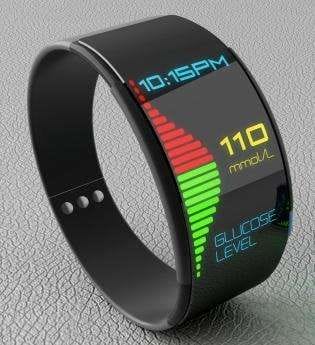It’s easy to take
your eyesight
for granted


Diabetes is the leading cause of vision loss in people 18-64 years of age
Often with no obvious signs, symptoms or pain
An annual comprehensive eye exam is critical for prevention and early detection of diabetes and related eye complications. Diabetes affects the tiny blood vessels in the retina (the back of the eye), which our eye doctor examines during an eye exam. This is the primary way diabetes is detected—often long before you even experience other symptoms.
Diabetic Retinopathy is the most common and serious condition associated with diabetes. Left untreated, diabetic retinopathy can result in blindness.
Symptoms
Often none.
Treatment
Good control of your diabetes, including controlled blood glucose levels. Other treatments may include medications, laser treatment, or surgery.
The longer you have diabetes, and the less well-controlled your blood sugar is, the more quickly diabetic retinopathy develops.
To protect your vision, take prevention seriously. Start by carefully controlling your blood sugar level and keeping your yearly (or more frequently, if needed) eye exams. Some diabetic eye diseases have no signs or symptoms until they are too obvious to ignore. In fact, it’s uncommon to have symptoms in the early stages. As the disease progresses, symptoms may include:
- Blurred vision
- Dark ‘Spots’ or empty areas in your vision
- Flashes of light
- Difficulty with color perception
- Poor night vision
- Spots or dark strings floating in your vision (floaters)

Macular Degeneration
The Macular Degeneration Association (MDA) issued an urgent warning in March of 2016 to those who have been diagnosed with intermediate dry age-related macular degeneration (AMD). The warning advised patients to talk with their eye doctor about commonly prescribed eye vitamins using the Age Related Eye Disease Study (AREDS) formula containing zinc, which upon further review might actually be harmful to some patients. MDA reports, “Research published in the journal Ophthalmology in 2013 and in 2015 by Dr. Carl Awh (Tennessee Retina) et al., demonstrated that 35% of patients had a genetic profile, which did well on the AREDS formulation including zinc. It also showed that for 13% of patients with a different genetic profile the standard AREDS formula was detrimental and significantly accelerated vision loss faster than placebo.”
At this time the leaders and ophthalmologists of MDA are recommending a simple genetic test for those with intermediate dry AMD “that could potentially indicate the difference between slowing or accelerating the progression of vision loss.” The name of the genetic test that can provide this helpful information is called the Macula Risk Test.
Who Should Be Tested?
Macula Risk can predict how a patient with AMD will progress. Not everyone who has dry AMD progresses to more advanced stages that result in severe vision loss. Predicting which patients are at risk for developing advanced AMD is difficult because there are many risk factors that contribute to this disease such as age, gender, and genetics as well as diet, sun exposure and smoking. According to Dr. Edward Paul, “This newer test for those diagnosed with AMD covers the genotype spectrum for those who are at a low risk for vision loss in the future as well as those that have a medium or high risk for severe vision loss. “
How is The Genetic Testing Done?
The test is administered in our office using a cotton swab on the inside of the patient’s cheek. The swab is then sent to a genetic laboratory for DNA testing. In light of the new findings that certain genetic profiles do worse using the original AREDS eye vitamin formula, Macula Risk is “designed to determine a patient’s risk of progression to advanced Age-related Macular Degeneration (AMD) and aid in the selection of appropriate eye supplement formulations for AMD based on his or her individual genetic risk profile.”
The next time you visit, ask the doctor whether you would benefit from the genetic testing so you can make an informed decision about your eye vitamin selection.


Contact us
Call us
Visit us anytime
Goodrich Optical, 2450 Delhi Commerce Dr. Holt, MI 48842
Send us an email
About us
Subscribe
Sign up for our newsletter to receive all the latest eye health news as well as offers and discounts from Goodrich Optical.
Copyright © 2023 all rights reserved.
